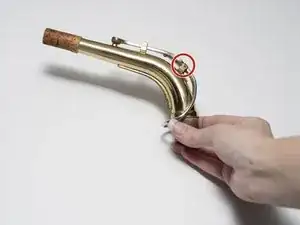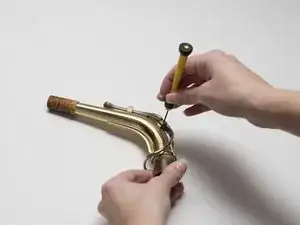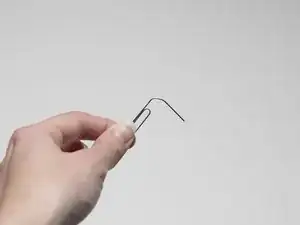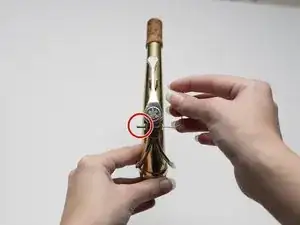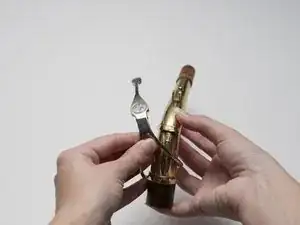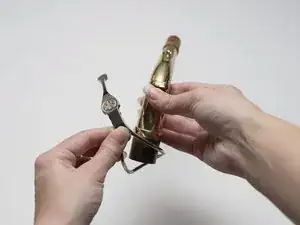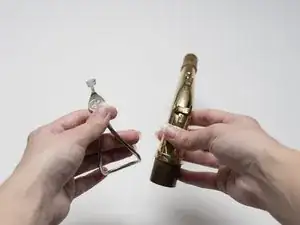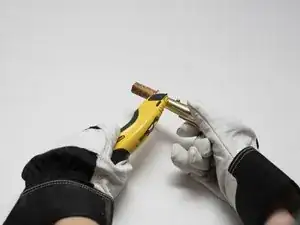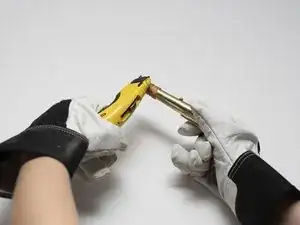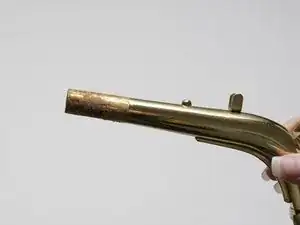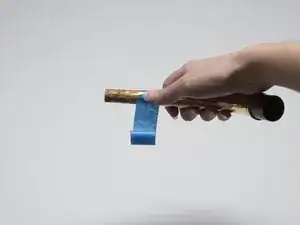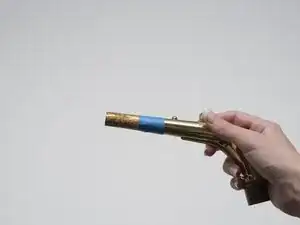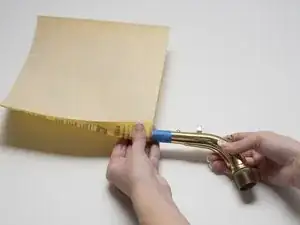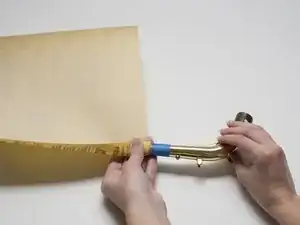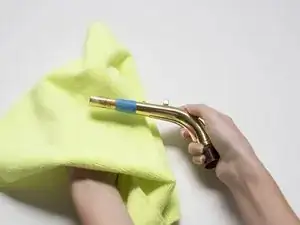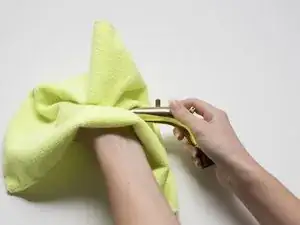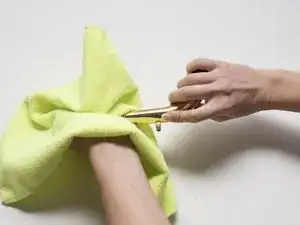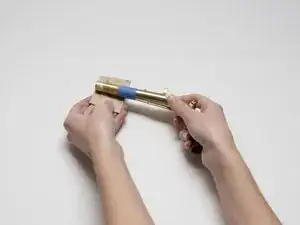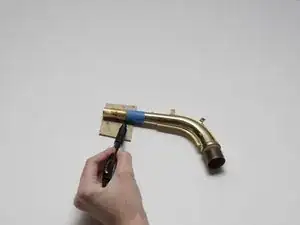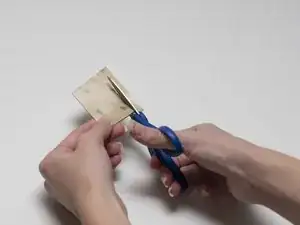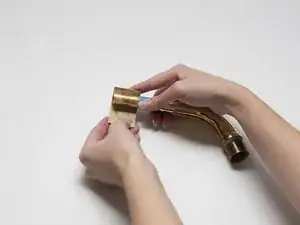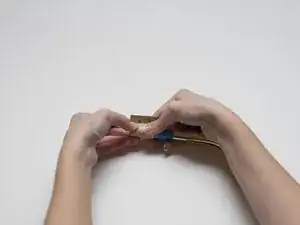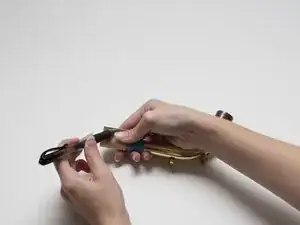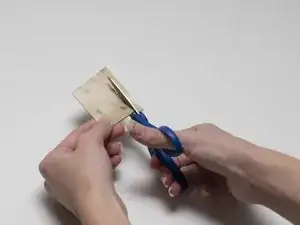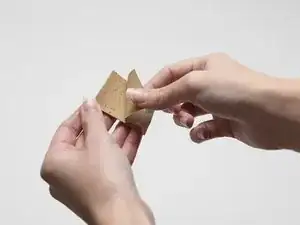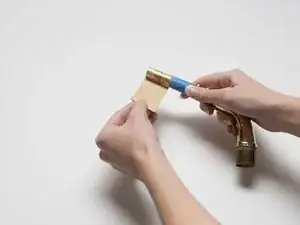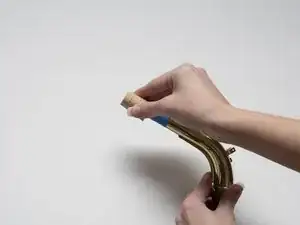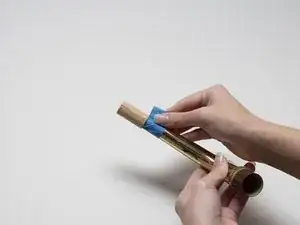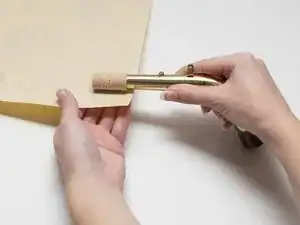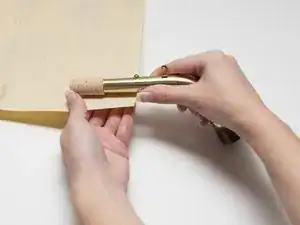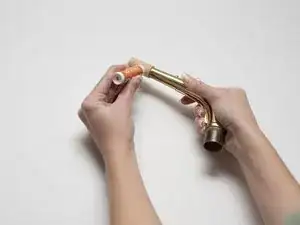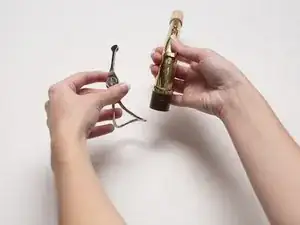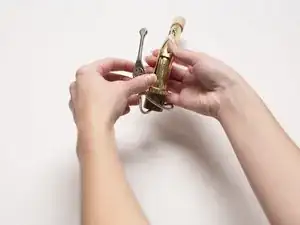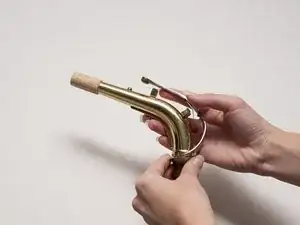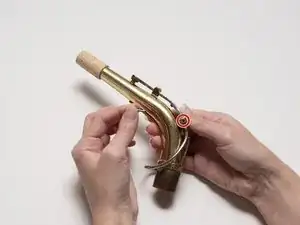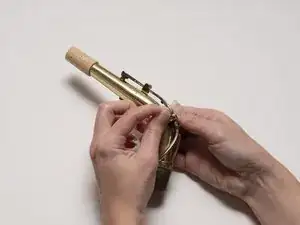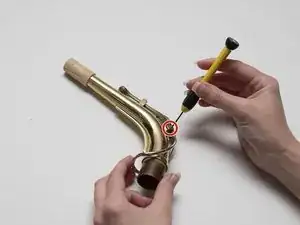Introduction
Through normal wear and tear or rough handling, saxophone corks can become damaged, rendering the instrument useless or operating at diminished quality. This guide will replace a Yamaha YAS-23 alto saxophone cork; however, the size for all alto saxophone neck-pieces is standard, so this repair is applicable to all alto saxophone neck-piece cork repairs.
For optimal performance, saxophones require a well fitting cork. Without this, tone quality will be sacrificed, or the saxophone will cease to function.
Tools
Parts
-
-
Locate the screw on the side of the neck-piece, connecting the octave key to the neck-piece.
-
Use a small, 2.5 mm flat head screwdriver to remove the screw.
-
-
-
Use the utility blade to scrape off the cork.
-
Start at the base of the cork on the neck-piece with the utility blade at a 10 to 20 degree angle.
-
In a controlled motion, drag the utility blade along the neck-piece, removing cork along the way.
-
Repeat until all of the cork is removed.
-
-
-
Remove glue and resin by rotating the neck-piece against the 220 grit sand paper.
-
Repeat until all glue is gone.
-
-
-
Place the Valentino neck cork flush with the entrance of the neck-piece.
-
Mark a line where the Valentino neck cork meets the masking tape.
-
Cut along the line.
-
-
-
Wrap Valentino neck cork around the neck-piece.
-
Make mark where the Valentino neck cork overlaps.
-
-
-
Remove the adhesive covering on the back of the Valentino neck cork.
-
Wrap the Valentino neck cork around the top of neck-piece.
-
-
-
Sand the seam of the Valentino neck cork until it is even with the rest of the Valentino neck cork.
-
-
-
Re-insert the screw.
-
Tighten the screw with a small, 2.5 mm flat head screwdriver.
-
The replacement is complete.
-
One comment
I’m usually here for computer guides, I couldn’t believe a sax guide was here! Was overjoyed! Can someone make a Alto Sax full pad replacement guide? I know it’s a big ask! But I have a YAS-23 and it needs all new pads, getting it serviced by a pro is between $700-$850!! But buying pads yourself is as low as $50 or on the high end $200. This seems like a tutorial the world needs to have! Thank you to anyone that even took the time to read this.
Cameron -
